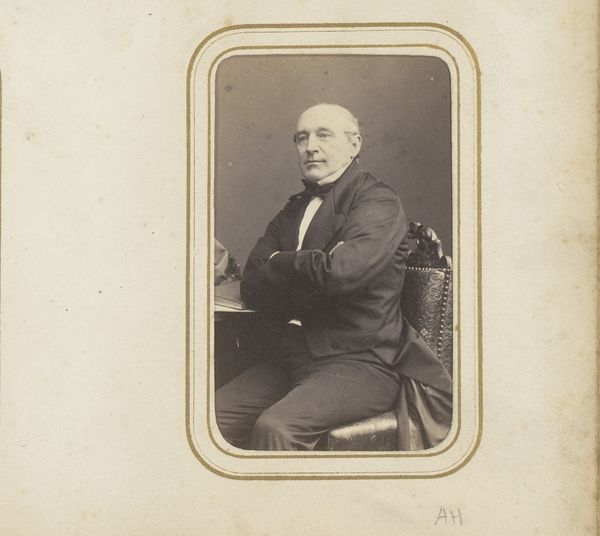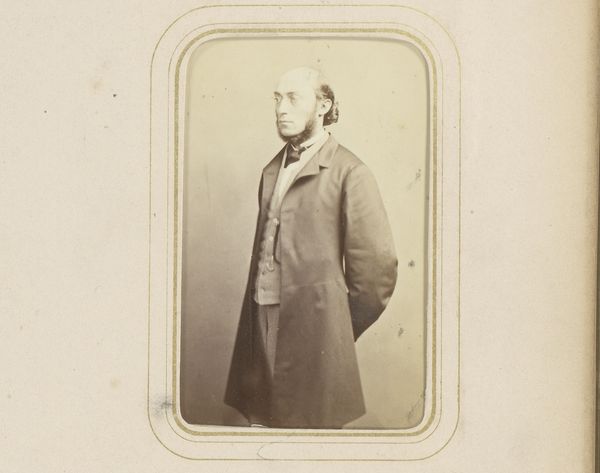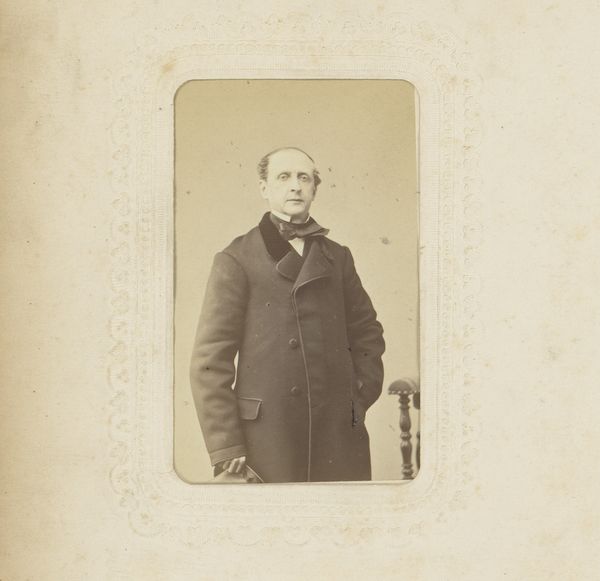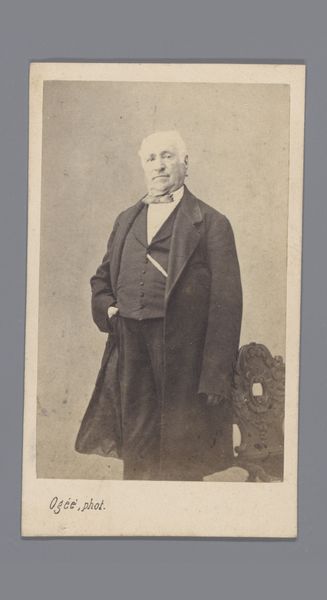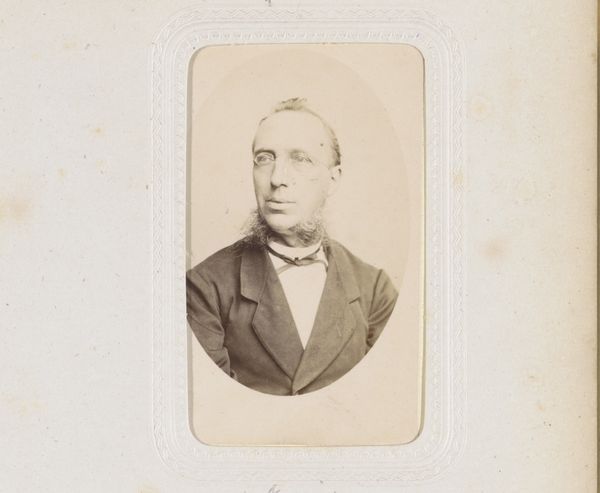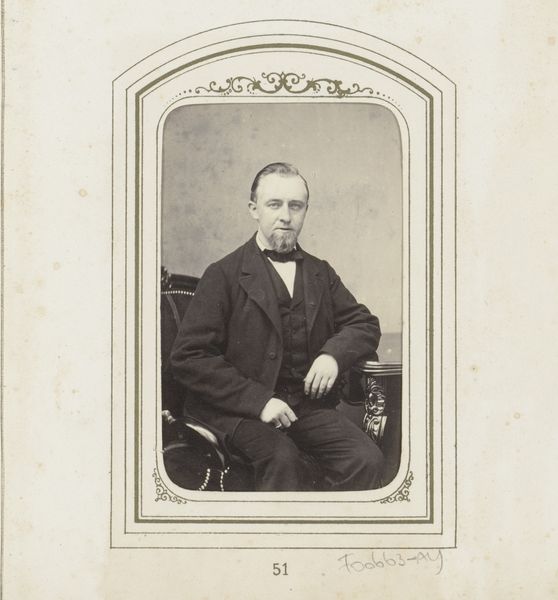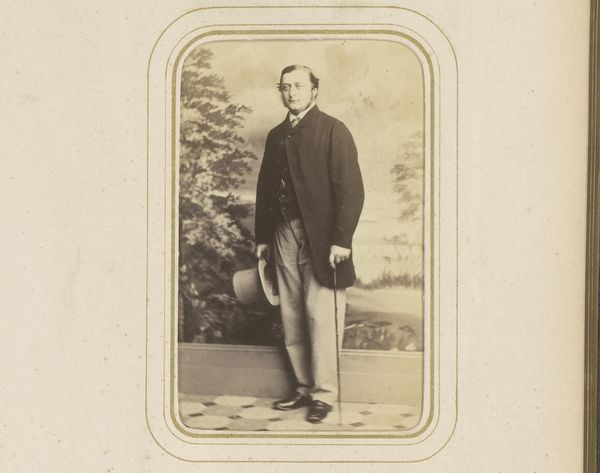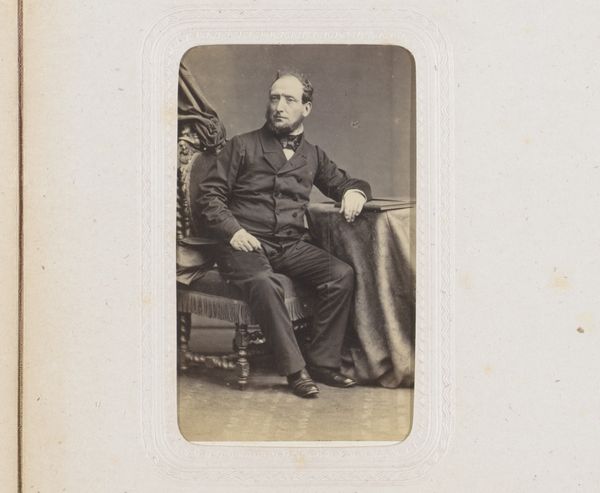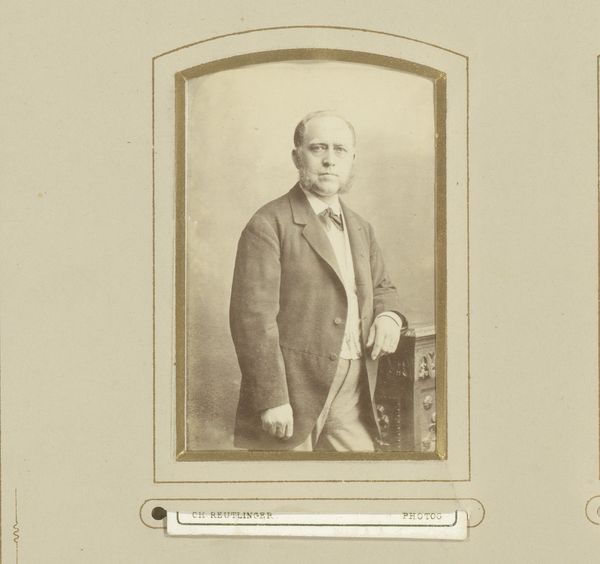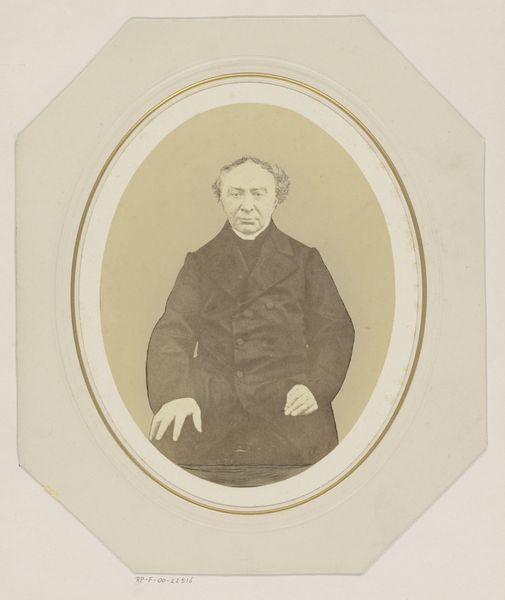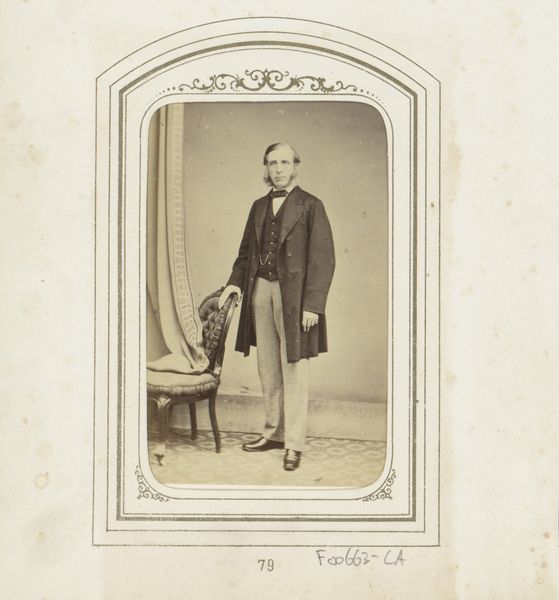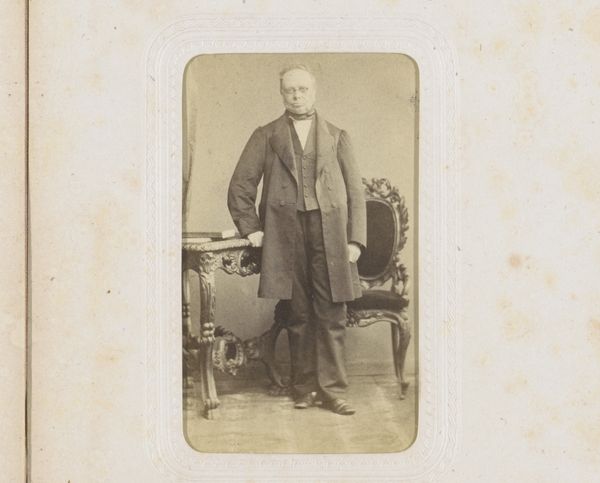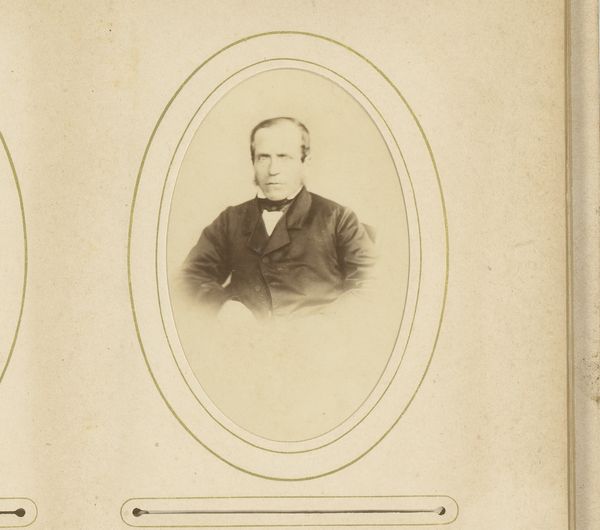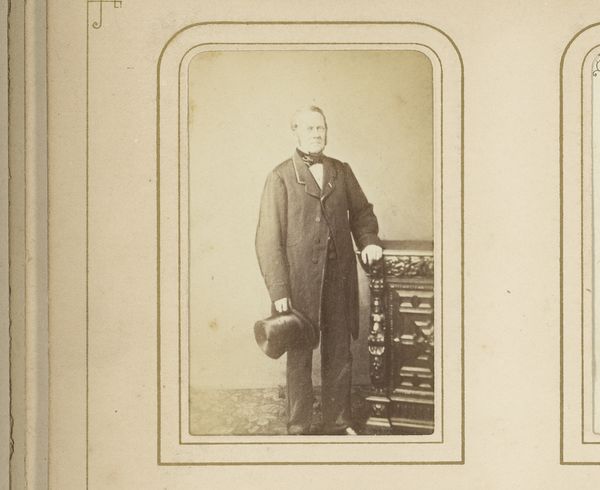
photography, gelatin-silver-print
#
portrait
#
16_19th-century
#
photography
#
historical photography
#
gelatin-silver-print
#
19th century
#
genre-painting
#
academic-art
Dimensions: height 83 mm, width 51 mm
Copyright: Rijks Museum: Open Domain
Curator: This is “Portrait of a Man, Standing by a Chair” by Joseph Maes, a gelatin-silver print from around 1863 to 1866. What are your initial thoughts? Editor: Stark, formal, yet also slightly unsettling. The monochrome and stiff pose lend an air of detachment, though the subject’s gaze holds my attention. There's something about the materiality, a physical density. I'm wondering what the social dynamics were that made these pictures, how much control this man had. Curator: Let's delve into the formal composition. The sitter’s positioning—leaning against the chair—creates a dynamic diagonal line against the verticality of the composition. Notice how Maes balances the darkness of his coat with the muted tones of the backdrop, thereby emphasizing the subject’s face. Editor: Right. Consider the labor involved. Someone prepared the chemicals, coated the plates, made the exposure, developed the print. These weren't simple snaps. The deliberate posing, the sitter’s garments—all speak to status and social performance. And how did they create that decorative mount around the print, all those tiny repeating embossed designs? What level of hand labor went into it? Curator: An intriguing question, indeed. But before we wander too far into hypothetical speculation, it's essential to observe how Maes carefully controls light and shadow to model the face and figure. The soft focus gives the subject an ethereal, almost timeless quality. Editor: Ethereal maybe, but I still see the class dynamics embedded in this image's creation and survival. Think of the access to the technology required at the time, the resources involved in sitting for a portrait. Curator: A valuable reminder of how even ostensibly simple photographic portraits can contain so much visual and material complexity. Editor: Precisely. And perhaps the key is to recognize the social dimensions of even the most "timeless" of images.
Comments
No comments
Be the first to comment and join the conversation on the ultimate creative platform.
